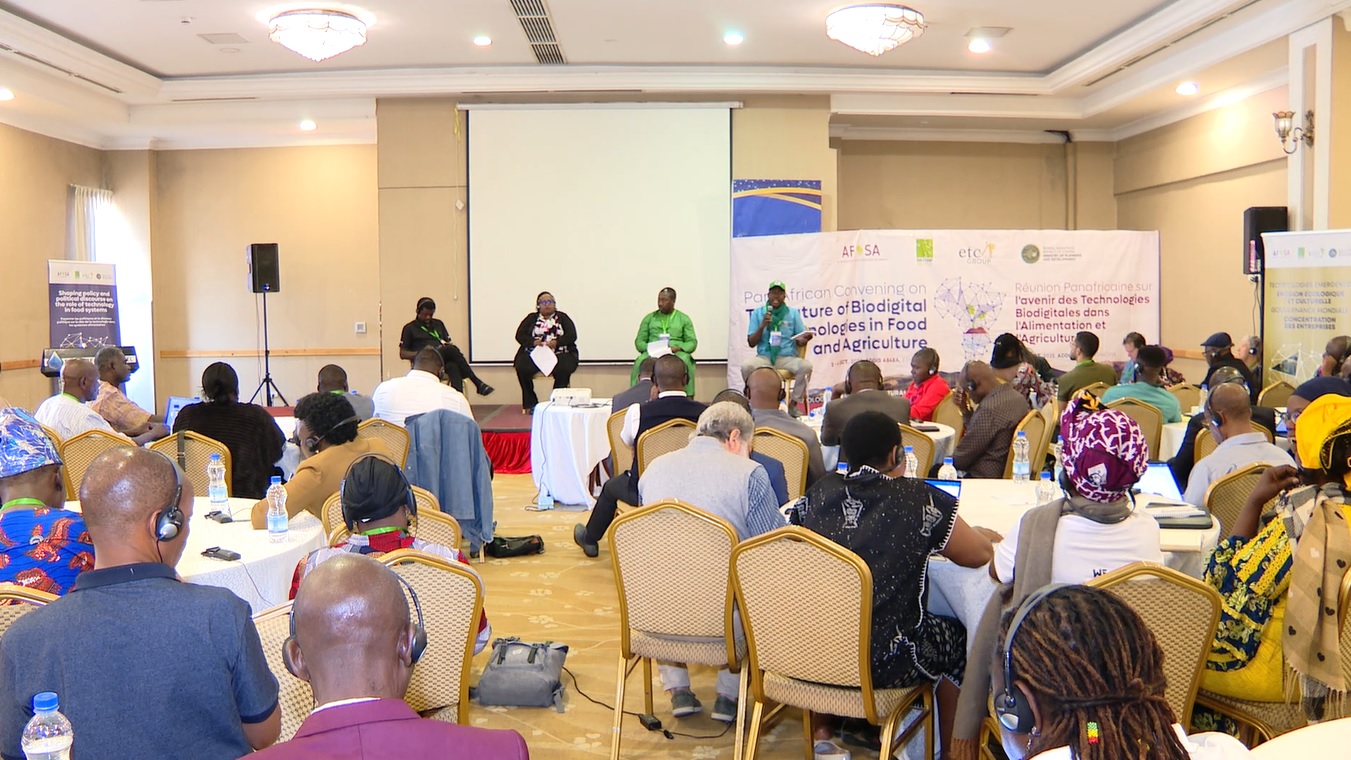Emerging Technologies Posing Threats to Data Sovereignty of Africa: IRPAD Executive Director - ENA English
Emerging Technologies Posing Threats to Data Sovereignty of Africa: IRPAD Executive Director

Addis Ababa, October 3, 2025 (ENA)—Africa needs to address its developmental challenges, particularly in the context of economic recession and data management, as emerging technologies such as artificial intelligence are posing threats to data sovereignty of the continent, IRPAD Executive Director Mamadou Goita said.
At a press briefing some participants of the Pan-African Convening on the Future of Biological Technologies in Food and Agriculture meeting gave today, the Executive Director of Institute for Research and Promotion of Alternatives in Development (IRPA) emphasized the critical role of data in tackling the challenges.
Reliable data is necessary for effective decision-making and resource management, he noted, adding that the continent faces significant threats from what he termed "data colonialism," where external entities dominate data collection and control, potentially leading to the exploitation of Africa’s resources.
"The ownership of these data often lies in the hands of foreign companies, which poses a significant risk to our sovereignty," he warned.
To combat these threats, Goita called for the establishment of strong and informed regulations to protect the continent’s interests in the ongoing collaboration with the African Union to develop a framework for assessing technologies proposed to African nations.
The Executive Director also highlighted the need for model laws to guide countries in creating effective legal frameworks urgently.
"Many countries are struggling to establish data protection laws. We currently have 16 countries working on such legislation, with 24 more in the process."
In addition, Goita stressed the importance of grassroots mobilization, calling for capacity-building efforts to educate local communities, including farmers and indigenous groups, about the implications of new technologies.
On his part, Alliance for Food Sovereignty in Africa (AFSA) General Coordinator, Million Belay, said digitalization represents a fusion of biology and the digital realm with many institutions viewing it as a positive development for humanity.
However, he urged participants to adopt a political economy perspective, questioning the power dynamics involved in the creation and ownership of these technologies.
Million highlighted the precarious position of African farmers and communities, noting that they often serve as data providers without reaping the benefits.
"We do not own the intellectual property rights, data centers, or the digital infrastructure. These are predominantly controlled by companies outside the continent."
According to him, nine of the world’s richest companies are data companies that profit from African data without providing any returns to the information providers.
Sabrina Masinjila, Senior Program Officer for Agrology, Food Justice, and Sovereignty at the Society for International Development, stressed that Africa needs robust data governance frameworks in place to protect traditional knowledge and germplasm.
"Digitalization is appropriating our germplasm and traditional knowledge, threatening the very foundation of African food and seed systems," she warned, calling for protective mechanisms to safeguard these vital resources for the future.
Barbara Ntambirweki, a researcher working with ETC Group said Africa wants farmers to be at the heart of technology development.
She stressing the need for promoting indigenous knowledge and customs in technology narratives.
"Many technologies currently promoted in Africa do not prioritize the needs of our farmers. We need to uplift and support indigenous innovations that can truly help us tackle the challenges we face," she explained.
AI Market and Power Fellow with the European AI and Society Fund, Jim Thomas, said emerging technologies, including artificial intelligence tools, require vast amounts of continuous data; and companies are increasingly looking to Africa for these resources as it has 42 percent of the world’s youth.
Thomas emphasized the importance of involving African youth in these discussions as they are the primary data providers for AI companies.
"Building intergenerational conversations is essential for understanding the impacts of these technologies on various movements, including health, digital rights, and food sovereignty."
The three-day Pan-African Convening on the Future of Biological Technologies in Food and Agriculture meeting is on its second day.